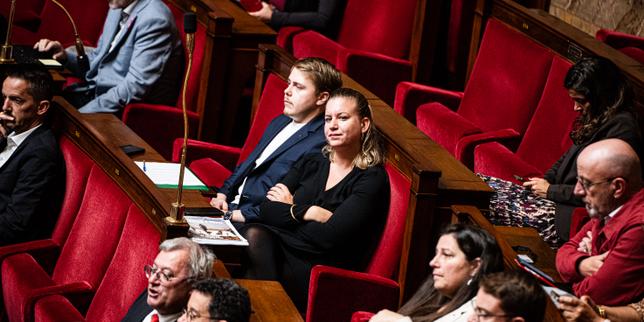Macron’s Government Strengthened by Socialist Support amid Left-Wing Opposition
The Socialist Party’s implicit support strengthens Macron’s government as La France insoumise criticizes the left’s division following a failed censure vote over pension reforms.
- • LFI’s censure motion failed by 18 votes, with no PS support, highlighting left-wing divisions.
- • Socialist Party implicitly supports Macron’s government by not censuring it, reinforcing its power.
- • Jean-Luc Mélenchon criticized the PS for a "Macron-Faure pact" and complicity with the government.
- • Sebastien Lecornu remains a loyalist within the government, symbolizing political continuity under Macron.
Key details
Emmanuel Macron’s government, despite facing criticism and a failed censure motion, appears politically strengthened thanks to the implicit backing of the Socialist Party (PS). This development comes after a recent attempt by the far-left La France insoumise (LFI) to censure the government over the controversial pension reform, which fell short by 18 votes. The Socialist Party notably chose not to support the motion of censure, a move that LFI and its leader Jean-Luc Mélenchon sharply criticized.
Mathilde Panot, leading the LFI group in the National Assembly, accused the PS of being either misguided or in tacit agreement with the presidential camp, arguing that the Socialist Party’s refusal to back the censure amounted to complicity with Macron’s government. Mélenchon publicly condemned the PS for its "Macron-Faure pact," underscoring the widening rift on the left. The margin of defeat in the censure motion was notably wider than two years ago, when LFI fell short by only nine votes.
Meanwhile, Sebastien Lecornu remains a loyal figure within Macron’s administration, heading a government that, while modest in tone and partially comprised of non-traditional political figures, continues a clear political continuity under Macron’s leadership. Olivier Faure, head of the PS, has been described as adopting a more restrained political role, choosing not to challenge Macron’s authority directly and thereby effectively legitimizing the government’s ongoing course despite significant opposition from more radical left factions.
This political dynamic indicates a complex landscape within the French left, where the Socialist Party has re-emerged as a moderating force aligned more closely with the incumbent government, whereas La France insoumise continues to push a more confrontational opposition. As a result, Macron consolidates power even amidst criticism and accusations of a political “coup de force,” navigating a fractured left-wing opposition and maintaining governance at a challenging time for his administration.
This article was translated and synthesized from French sources, providing English-speaking readers with local perspectives.
Source articles (2)
Source comparison
Latest news
Middle East Conflict Sparks Surge in French Fuel Prices Amid Supply Concerns
Macron Announces Major Shift in France's Nuclear Policy with Increased Arsenal and European Integration
French Government Prioritizes Safety of Nationals Stranded Amid Middle East Conflict
French Prisons Reach Record Overcrowding with 86,645 Inmates as of February 2026
Pau's Local Election Campaign Gathers Momentum Amid Broader Political and Economic Concerns
French Companies and Regions Accelerate Efforts in Nature-Related Economic Transition
The top news stories in France
Delivered straight to your inbox each morning.


